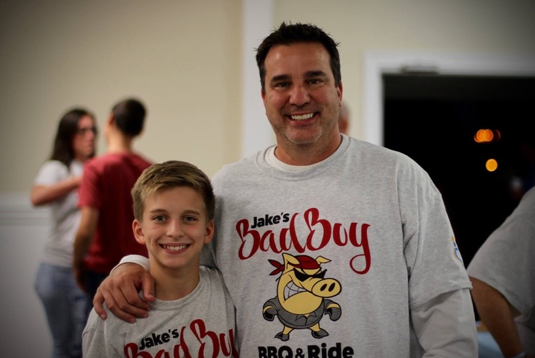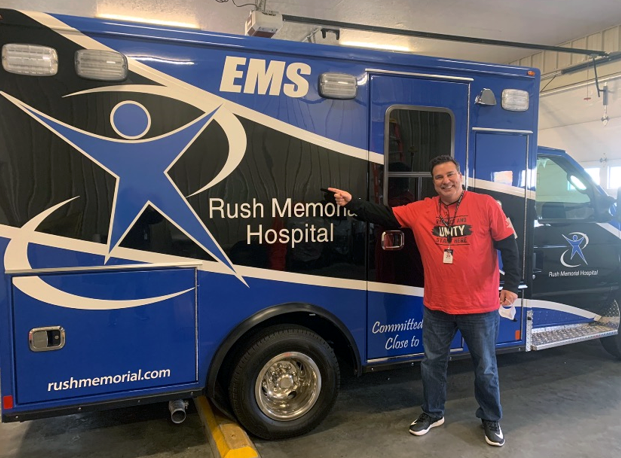 The Indiana Hospital Association (IHA) recently named Brad Smith its board chairman for 2022. Smith has served as the president and chief executive officer (CEO) of Rush Memorial Hospital (RMH) since August 2004. As chairman, Smith will oversee board meetings and play an active role in identifying and establishing priorities and future goals for the Association.
The Indiana Hospital Association (IHA) recently named Brad Smith its board chairman for 2022. Smith has served as the president and chief executive officer (CEO) of Rush Memorial Hospital (RMH) since August 2004. As chairman, Smith will oversee board meetings and play an active role in identifying and establishing priorities and future goals for the Association.In order to get to know IHA's newest board chairman, IHA sat down with Smith to get to know him on a more personal level, while also hearing more about his commitment to improving Hoosier's health after the challenges of the pandemic.
Q: How did you get into health care?
A: It was my first job right out of college! Even though I was on the financial/administrative side of health care, it still felt like I was having a positive impact on people's lives indirectly. That was a wonderful feeling for me. I decided right then that health care was going to be my career choice long-term.
Q: What are some of your biggest goals as the new Board Chair?
A: I would like to bring communications between IHA and the members to a new level. I would like to work on the workforce shortages and continue to improve mental health for all. Another goal is to incentivize quality and value while working with other sectors to improve public health metrics which will bring the costs down for everyone. In addition, I would like to begin discussions with all stakeholders to strategize how to deliver the best health care at an affordable price.

Q: What would you say are some lessons learned in health care post-COVID?
A: We are still in the middle of the pandemic dealing with the aftermath of multiple strains of COVID-19. Nationwide, we learned very quickly we were not prepared to handle a pandemic of this magnitude. The good news is that everyone across the state of Indiana pulled together and operated as one “system" to help manage the ever-changing virus. I am constantly amazed how Hoosiers always pull together when there is a crisis, and will do whatever it takes to help. One thing we learned, which I hope to address, is the need to focus on mental health and how many of our Hoosier hospitals do not have adequate access for our staff, patients, and people in our communities.
Q: As you mention, we are seeing more mental health issues in a post-COVID world. How do you hope to help address this problem in the Hoosier state?
A: I started in the mental health side of health care, then transitioned into the physical side later in my career. I think having experience in both areas helps me bridge the gap while having a better understanding of mind, body, and the challenges and opportunities with both. Addressing mental health concerns is a top priority, especially after the pandemic. We are seeing more and more individuals, including our youth, battle with this daily. Access is key to this discussion, and I look forward to continued conversations with state and federal lawmakers, community members, and providers to address this important issue.

Q: How has COVID changed how hospitals operate?
A: I think every hospital was forced to think differently during the pandemic, and a lot of the policy changes and process changes will be permanent in some areas. The most noticeable change for all hospitals was the use of technology and the expansion of telehealth. The pandemic accelerated virtual visits and meetings for all of us.
Q: What are some of your proudest moments in health care?
A: My proudest moments will always be serving others above myself and watching how resilient and dedicated the staff and providers are, taking care of patients regardless of the circumstances.
Photos courtesy of Brad Smith.
